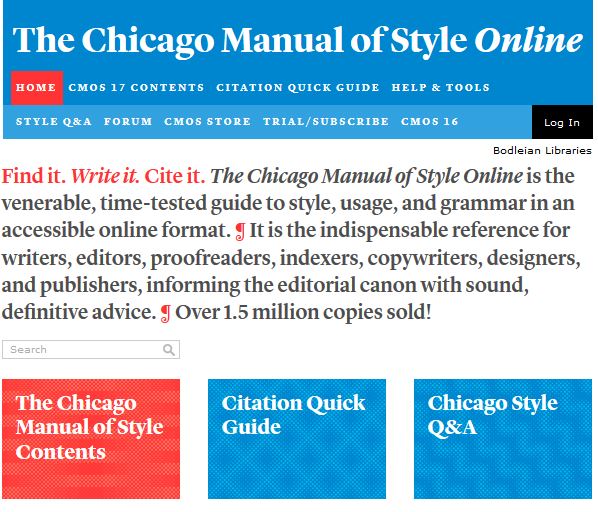Oxford researchers and students are now invited to trial the online version of Chicago Manual of Style Online (17th ed.). It is available via SOLO or OxLIP+. First published in 1906 by Chicago University Press, the Chicago Style Manual’s Notes and Bibliographies system is one of the most widely used citation styles in the Humanities. Its Author-Date system is more commonly used in the Sciences and Social Sciences.
First published in 1906 by Chicago University Press, the Chicago Style Manual’s Notes and Bibliographies system is one of the most widely used citation styles in the Humanities. Its Author-Date system is more commonly used in the Sciences and Social Sciences.
The online edition of this authoritative reference work is full-text searchable. It also includes the 16th edition and be read and browsed as a book. The content covers the publishing process, style and usage, and source citations and indexes. When reading the Chapter 4 (Rights, Permissions, and Copyright Administration) please remember that it will refer to the US copyright regulations. A quick guide is available as are Q&As and video tutorials.
Please send feedback to isabel.holowaty@bodleian.ox.ac.uk.
Also useful:
- Search ” Authorship — Style manuals” as a subject in SOLO to find publications on more style manuals.
- Check out the Managing your references guide on Oxford LibGuides. It includes details of forthcoming courses.

